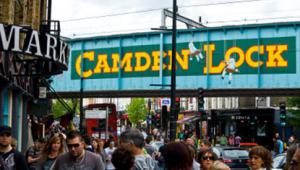The chancellor promised in the autumn Budget last year that councils would be compensated for losses in income they incurred over changes to the so-called ‘staircase’ tax.
This would be a return to a previous method of business rates collection, and follows a Supreme Court ruling in August last year, which lead to communities secretary Sajid Javid publishing draft legislation to reverse the tax.
The ‘staircase tax’ means businesses owning more than one adjoining floor with a communal staircase are taxed as if they had separate properties. They were then unable to access rates relief payments, which they would qualify for if they owned one building.
But the housing, communities and local government committee has now highlighted a letter written to council finance officers days after the Budget telling them that the government would not be compensating local authorities for any loss of income due to the reversal of the tax.
The draft legislation, which would overturn the tax, is being laid in Parliament today.
The committee has recommended that the government calculate the bill’s effect on local authorities and that the government “explain in detail why it does not now plan to honour its autumn Budget 2017 commitment to compensate local government fully for the loss of income”.
Its MPs said: “Despite its previous commitment at the time of the autumn Budget 2017, the government told us in correspondence and in response to its consultation on the draft bill that ‘no compensation will be payable to local government’.”
The letter said: “Any additional business rates revenue to local authorities from the ruling will be offset by the reinstatement of the VOA’s [Valuation Office Agency] previous practice.
“The overall impact on local authorities will therefore be nil, and we do not plan to compensate local authorities in relation to any income lost as a result of this measure.”
Public finance experts have told Public Finance it is difficult to know how much local authorities will lose from this change.
CIPFA has said: “It is understood that, at this time, a full analysis has not been carried out and consequently, the impact of the policy intention cannot be fully quantified.”
The Local Government Association said the government’s position to not pay the compensation was “disappointing”.
The government will still be compensating councils for changes which will see business rates based on the consumer price index rather than the higher retail price index rate. This change is effective from this month.
In April 2017, four city regions began piloting 100% retention of business rates, followed by a further 11 pilot areas announced this month.
The government has said it will raise business rates retention to 75% in 2020-21. The plan is to phase out grants and for councils to eventually rely on 100% business rates retention.










